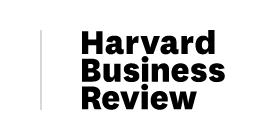Managing people
What Psychological Safety Looks Like in a Hybrid Workplace
by Amy C. Edmondson and Mark Mortensen
Since the pandemic changed the landscape of work, much attention has been given to the more visible aspects of WFH, including the challenges of managing people from a distance (including reduced trust and new power dynamics). But a far less visible factor may dramatically influence the effectiveness of hybrid workplaces. As suggested by the above quotes, sorting out future work arrangements, and attending to employees’ inevitable anxieties about those arrangements, will require managers to rethink and expand one of strongest proven predictors of team effectiveness: Psychological safety.
How New Forms of Work Affect Psychological Safety
Psychological safety — the belief that one can speak up without risk of punishment or humiliation — has been well established as a critical driver of high-quality decision making, healthy group dynamics and interpersonal relationships, greater innovation, and more effective execution in organizations. Simple as it may be to understand, Amy’s work has shown how hard it is to establish and maintain psychological safety even in the most straightforward, factual, and critical contexts — for example, ensuring that operating room staff speak up to avoid a wrong-side surgery, or that a CEO is corrected before sharing inaccurate data in a public meeting (both are real-life psychological safety failure examples reported in interviews). Unfortunately, WFH and hybrid working makes psychological safety anything but straightforward.
When it comes to psychological safety, managers have traditionally focused on enabling candor and dissent with respect to work content. The problem is, as the boundary between work and life becomes increasingly blurry, managers must make staffing, scheduling, and coordination decisions that take into account employees’ personal circumstances — a categorically different domain….




 Getty
Getty